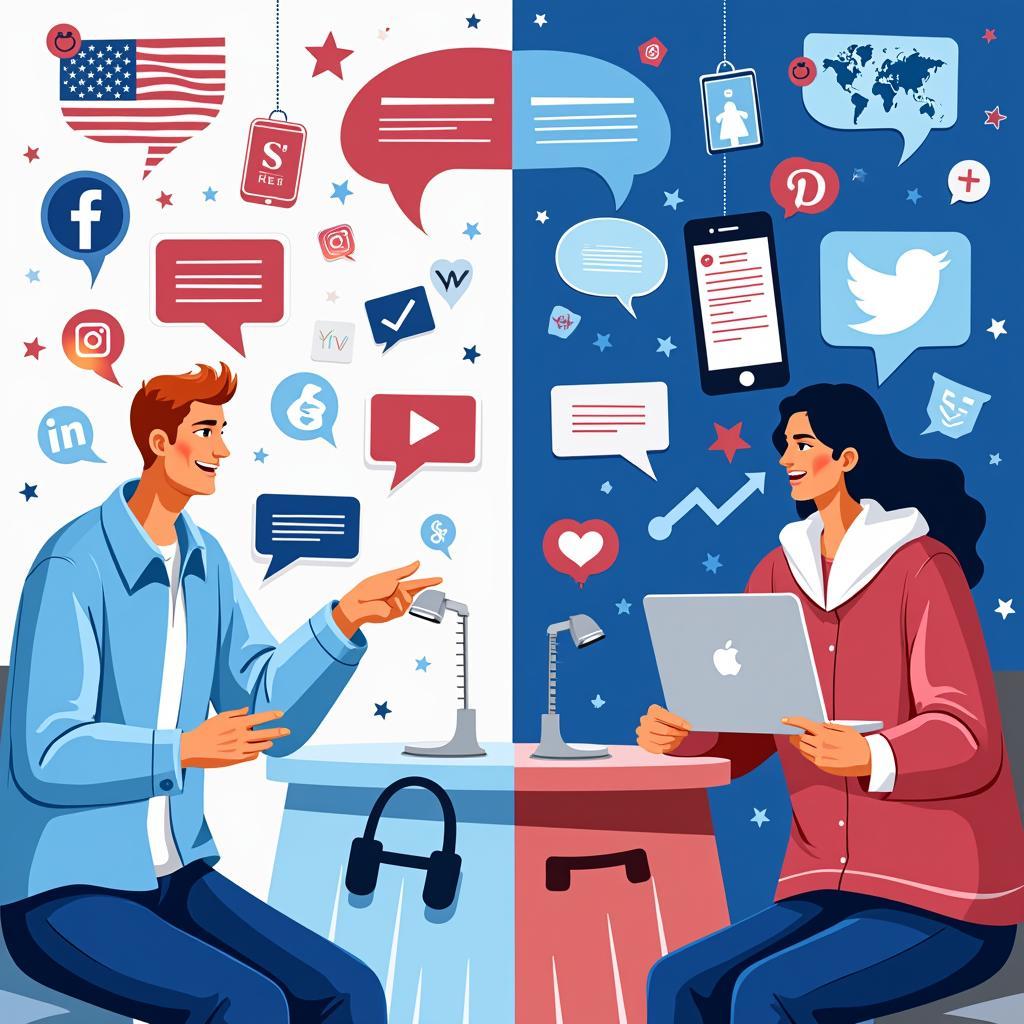Digital media’s influence on political campaigns has become an increasingly common topic in IELTS Writing Task 2 examinations. Based on analysis of past tests and current trends in impact of social media on political discourse, this theme is likely to appear more frequently in future tests.
Here is a recent IELTS Task 2 question on this topic:
Digital and social media have transformed how political campaigns are conducted. Some people believe this change has improved political discourse, while others argue it has had negative consequences. Discuss both views and give your opinion.
Analysis of Question
This question requires candidates to:
- Discuss both positive and negative impacts of digital media on political campaigns
- Present a balanced analysis of different viewpoints
- Provide relevant examples and evidence
- Express a clear personal opinion
- Follow the standard essay structure
The role of social media in political campaigns has become increasingly significant, making this topic particularly relevant for examination.
Sample Essay 1 (Band 8.5)
The digital revolution has fundamentally transformed political campaigning, generating intense debate about its implications for democratic discourse. While some celebrate enhanced political engagement through social media, others worry about the spread of misinformation and polarization. In my view, while digital media has democratized political participation, its drawbacks currently outweigh its benefits.
Digital platforms have undeniably improved certain aspects of political communication. Social media enables direct interaction between politicians and citizens, bypassing traditional media gatekeepers. Furthermore, online platforms have made political information more accessible to younger voters and historically marginalized groups. For instance, grassroots movements can now organize and mobilize supporters rapidly through social networks, as demonstrated by various successful digital campaigns across Asia and Europe.
However, the impact of social media on political campaigns has also introduced significant challenges. The proliferation of echo chambers and algorithmic content filtering tends to reinforce existing beliefs rather than promote genuine dialogue. Moreover, the viral nature of sensational content often prioritizes emotional appeal over factual accuracy. During recent elections in several countries, coordinated disinformation campaigns on social platforms have significantly influenced voter perceptions and behavior.

The how social media influences political elections has become increasingly concerning. Digital platforms’ emphasis on engagement metrics can incentivize divisive content and oversimplified messaging. Additionally, the speed of online communication often prevents thorough fact-checking and nuanced discussion of complex policy issues.
In conclusion, while digital media has revolutionized political campaigning and increased participation, its current implementation poses serious risks to democratic discourse. To harness its benefits while minimizing negative impacts, we need stronger regulation of political content online and better digital literacy education for voters.
Sample Essay 2 (Band 6.5)
Digital media has changed how political campaigns work. Some people think this is good, while others see problems. I will discuss both sides and give my opinion.
On the positive side, digital media helps more people join in political discussions. Politicians can talk directly to voters on social media. Also, it is cheaper to run campaigns online than on TV or radio. For example, many small political parties now use Facebook and Twitter to reach voters without spending much money.
However, there are some bad effects too. Many people share fake news on social media without checking if it is true. This can confuse voters about important issues. Also, some politicians use social media to attack their opponents instead of talking about real problems. During recent elections, we saw many angry arguments online between different groups.
how social media platforms influence public discourse shows that online discussions often become very negative. People only follow others who agree with them, which makes it hard to understand different views. Also, some countries have problems with foreign interference in their elections through social media.
In my opinion, digital media has more negative effects on political campaigns than positive ones. While it helps more people participate, it also spreads false information and makes people angry at each other. I think we need better rules for political content on social media.
Key Vocabulary
- Echo chamber (n) /ˈekəʊ ˌtʃeɪmbə/ – A situation where people are exposed only to opinions that match their own
- Algorithmic (adj) /ˌælɡəˈrɪðmɪk/ – Related to a set of rules for solving problems or doing calculations
- Polarization (n) /ˌpəʊləraɪˈzeɪʃn/ – Division into opposing groups
- Disinformation (n) /dɪsˌɪnfəˈmeɪʃn/ – False information spread deliberately
- Grassroots movement (n) /ˈɡrɑːsruːts ˈmuːvmənt/ – Political activity that originates from ordinary people
- Digital literacy (n) /ˈdɪdʒɪtl ˈlɪtərəsi/ – Ability to use digital technology effectively
- Nuanced (adj) /ˈnjuːɑːnst/ – Characterized by subtle differences
- Viral (adj) /ˈvaɪrəl/ – Spreading rapidly through social media
In conclusion, this topic remains highly relevant for IELTS candidates. Practice writing essays on related themes such as:
- The role of fact-checking in digital political campaigns
- Impact of social media on voter behavior
- Digital privacy concerns in political advertising
Feel free to share your practice essays in the comments section for feedback and discussion.